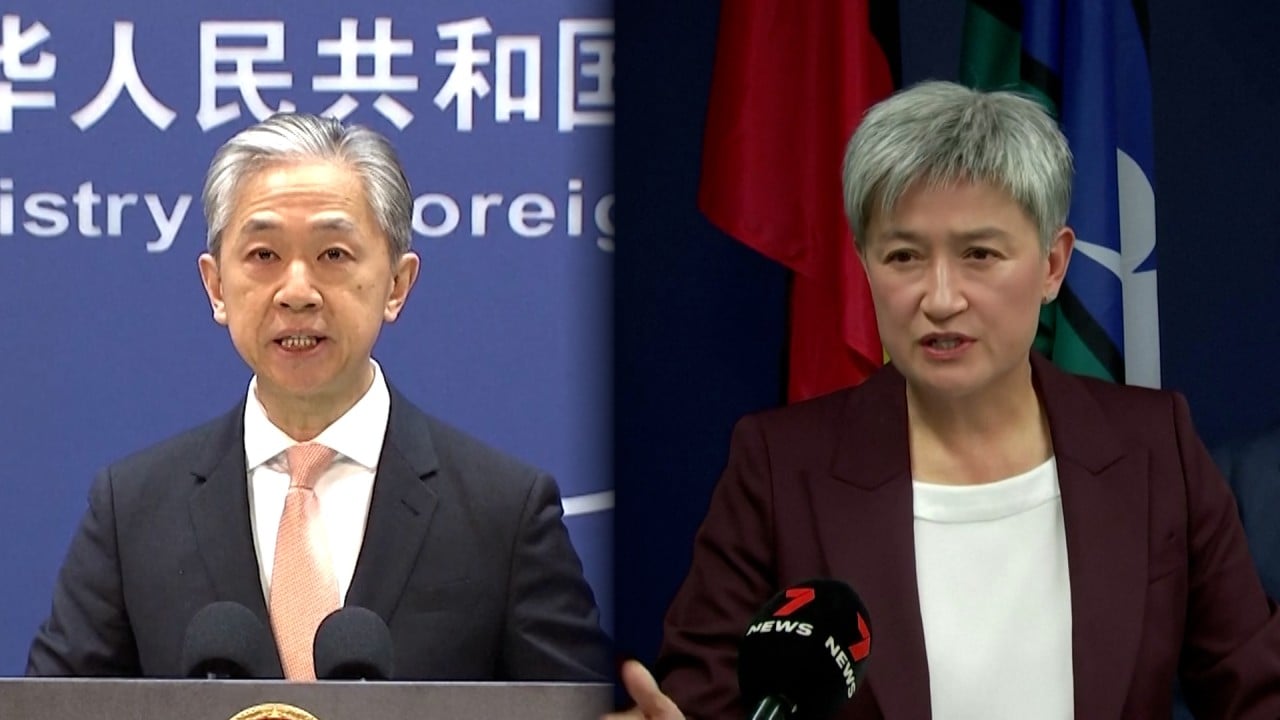
Australia can be a ‘reasonable’ moderator to ease US-China tensions: ex-foreign minister Julie Bishop
- As Australia-China ties stabilise under PM Albanese, Canberra is capable of being a ‘logical’ voice if tensions came to a head over Taiwan, Bishop said
- Despite Australia’s tricky balancing act, Canberra should continue to deploy soft diplomacy ‘because military conflict is very costly’, she added
“I believe that they will be joined by virtually every other nation in the region. I can’t think of anyone who thinks that conflict over Taiwan is a good idea,” Bishop said.
Australia can play ‘stabilising role’ in Asia amid US-China tensions: Singapore
Despite that, Australia is ready to be a “moderator” on tensions in the region as it remained “well-regarded in foreign circles” and other countries looked to Australia to “call it as it is”, Bishop said.
She said, however, that she would not overestimate Australia’s role in such a complex problem.
While mainland China had vowed to uphold peaceful collaboration and coexistence with all countries, that promise would end over Taiwan, she said.
“That puts a number of countries, including Australia, in an exquisite dilemma,” she said. “Our major trading partner is not also a major defence and strategic ally. In fact, our major trading partner is in open economic conflict with our major defensive strategic ally.”
Blinken readies a rapid Asia-Pacific return – with ‘China’s role’ in mind
“I think diplomacy, particularly soft power diplomacy, is under done in this country through successive governments and I would like to see much greater focus on our diplomatic efforts … because military conflict is very costly.”
But she would not be drawn into discussing whether the Morrison government squandered away any diplomacy with China, saying that “there were layers and layers of complexity that we can’t begin to fathom”.

Bishop said Australia should continue to engage with China, even after this week’s findings from the country’s productivity commission. The body found the decline in Chinese purchases of Australian goods due to Beijing’s trade restrictions did not significantly impact Australian production because those sales were redirected to other countries.
Australians see benefits of strong China ties but want Chinese apps banned: poll
While China was a “challenging partner”, Bishop said Australia needs to be “friends with everyone around the world”.
“A country of our size … we need to be part of the global economy, and China is a significant part of that economy,” she said.
As neighbours in the same region, the need to engage with China was also crucial, Bishop said.
She encouraged Albanese to accept an invitation to Beijing when it was extended. The prime minister was due to visit China this year, although nothing formal had eventuated.


